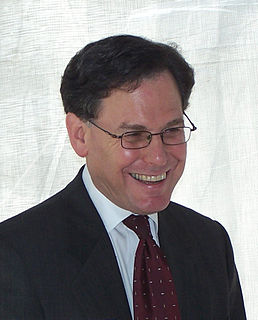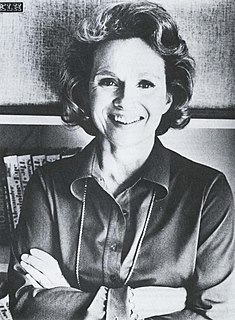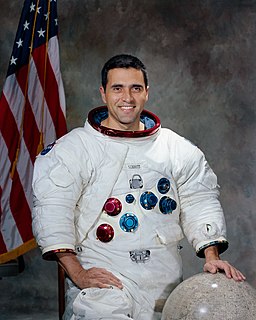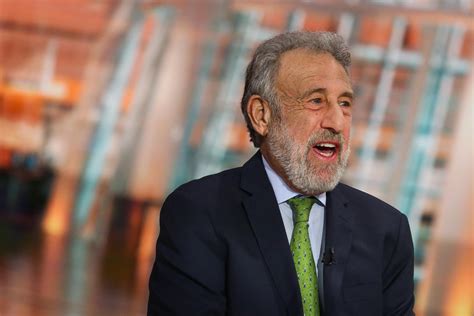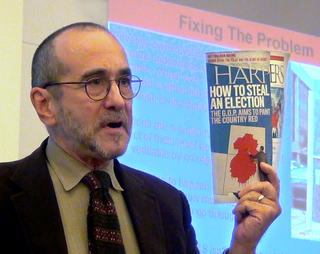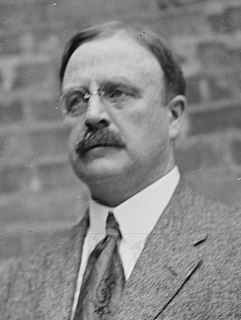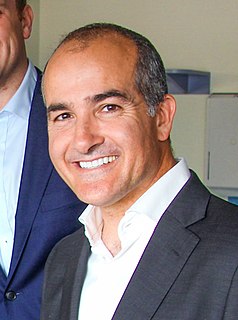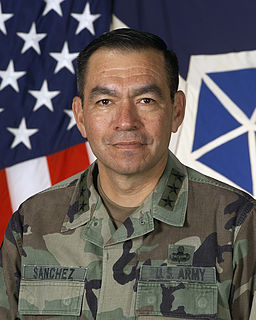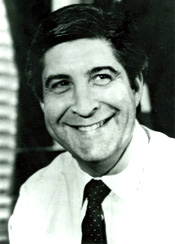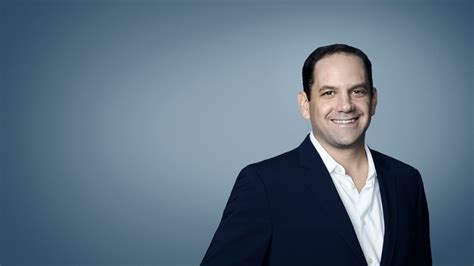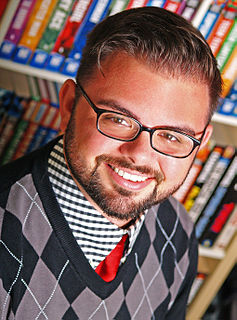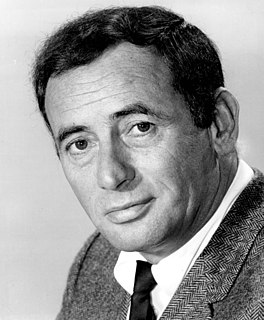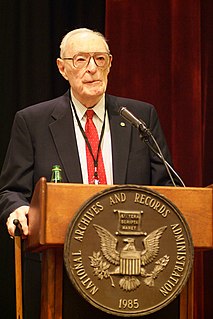Top 1200 Executive Quotes & Sayings - Page 20
Explore popular Executive quotes.
Last updated on April 16, 2025.
I call George W. Bush a radical because he is undertaking a fundamental transformation of our Constitutional system of government and of our longstanding policies that have been accepted for literally generations. He thinks to concentrate unaccountable power in the Executive. He thinks you alter the laws so that, as Commander in Chief, he can determine, under what he says are wartime conditions, what the laws are, which laws should be enforced, and declare by fiat what our policy should be, even abrogating longstanding international treaties.
In a way, both the U.S. media and those wacky rioters in the Afghan-Pakistani hinterlands are very similar, two highly parochial and monumentally self-absorbed tribes living in isolation from the rest of the world and prone to fanatical irrational indestructible beliefs — not least the notion that you can flush a 950-page book down one of Al Gore's eco-crazed federally mandated low-flush toilets, a claim no editorial bigfoot thought to test for himself in Newsweek's executive washroom.
I got a call from a mutual friend of ours, Charles King, who's also the executive producer. [Steven Caple Jr and I] had a conversation about it. I read it. We kind of finished each other's sentences when it came to the nuances and personality flaws that the character had, and some stereotypes and things we were trying to stay away from. We agreed on that as well. He just kind of allowed me to run rampant with the ideas. As we paced ourselves through, we developed Turquoise.
The Federal Building's large Ceremonial Courtroom, reserved for show trials, is veneered in executive teak. Bench, counsel tables, jury boxes, entrances, and exits -- all are as formally arranged as an Elizabethan stage. Only the drama is shapeless, at least to those of us who have never seen a trial before. We see only random movements, sequences, comings and goings, no form or agenda apparent. To us the action is less like watching a play than watching an aquarium.
I've written so many things over the years that I don't want to go back to being just a scriptwriter. I'm in what I consider to be the enviable position of all I have to do is come up with the idea and write an outline that makes it seem like it's a viable idea that will interest people, and then other people write the scripts -- and I become the executive producer or the producer, depending on how much involvement I have, and I get a creative credit and then move on to the next project.
Goldman Sachs was fundamentally responsible for the crash of 2008, but by that time its former Chairman and Chief Executive Officer, Henry 'Hank' Paulson, had been installed as US Treasury Secretary to begin the bank bail out policy, with enormous benefit to Goldman Sachs, in the closing weeks of the Bush administration. Goldman Sachs was also instrumental in the collapse of the economy in Greece that started the 'euro panic' that later engulfed Ireland.
I always want to read something about our people's enslavement near the 4th. To keep it light, I also read Rolanda Watts' "Destiny Lingers" She is a sisterfriend and I ran into her at Essence. Then, I finished Paul Taylor's "The Next America." Taylor is the Executive VP at the Pew Research Center, and he uses their excellent data base to talk about the coming "generational showdown" which we are experiencing, at some level, in Black America.
We can only live the changes we wish to see: we cannot think our way to humanity. Every one of us, every group, must become the model of that which we desire to create. We must break the obsolete social and economic systems that divide the world between the over-privileged and the under-privileged. Each of us, whether government leader or protester, business executive or worker, professor or student, share a common guilt.
Law itself is either suspended, or regarded as an instrument that the state may use in the service of constraining and monitoring a given population; the state is not subject to the rule of law, but law can be suspended or deployed tactically and partially to suit the requirements of a state that seeks more and more to allocate sovereign power to its executive and administrative powers. The law is suspended in the name of "sovereignty" of the nation, where "sovereignty" denotes the task of any state to preserve and protect its own territoriality.
A different [Ronald] Reagan-era authority: EO 12333, an executive order for foreign-intelligence collection, as opposed to the ones we now use domestically. So this one isn't even authorized by law. It's just an old-ass piece of paper with Reagan's signature on it, which has been updated a couple times since then. So what happened was that all of a sudden these massive, behemoth companies realized their data centers - sending hundreds of millions of people's communications back and forth every day - were completely unprotected, electronically naked.
Global warming may be a 'crisis,' even 'the most pressing environmental problem of our time.' ... Indeed, it may ultimately affect nearly everyone on the planet in some potentially adverse way, and it may be that governments have done too little to address it. It is not a problem, however, that has escaped the attention of policymakers in the Executive and Legislative Branches of our Government, who continue to consider regulatory, legislative, and treaty-based means of addressing global climate change.
There are estimates that we daily walked for 10 - 20 kilometers for hundreds of thousands of years. The world's best problem solving machinery grew up under conditions of consistent, strenuous physical activity. It makes sense that when we don't recreate the environments in which the organ was forged, we get a loss of function. And that when we do restore those environments, we get that function back. The effects of aerobic exercise on executive function skills is a powerful empirical example of this idea.
While the President [Barack Obama] did a good thing when he said he personally supported equal marriage, he then quickly backed away and said that he wasn't going to do anything about it - that it was a state matter, and that he wasn't going to interfere, as opposed to being than being a real advocate for equality across the board in marriage. He also, I think two weeks prior to that statement, refused to sign an executive order to establish equal rights in the workplace for the LGBT community.
To be worthy of the name, an experimenter must be at once theorist and practitioner. While he must completely master the art of establishing experimental facts, which are the materials of science, he must also clearly understand the scientific principles which guide his reasoning through the varied experimental study of natural phenomena. We cannot separate these two things: head and hand. An able hand, without a head to direct it, is a blind tool; the head is powerless without its executive hand.
Nothing in the Constitution of the United States gives the Congress or the Executive Branch the power to attempt the task of regulating climate, as impossible as that would be under any realistic scenarios. No national security emergency exists relative to climate that would warrant increased governmental control of energy production. Today's Americans have an obligation to future Americans to elect leaders who do not believe in an omnipotent government but believe, as did the Founders, in limited government, and in the preservation of liberty and the natural rights of the people.
In a democracy, every ordinary citizen is effectively a king--but a king in a constitutional democracy, a monarch who decides only formally, whose function is merely to sign off on measures proposed by an executive administration. This is why the problem with democratic rituals is homologous to the great problem of constitutional monarchy: how to protect the dignity of the king? How to maintain the appearance that the king effectively makes decisions, when we all know this not to be true?
Where would we in Washington and we in America be without the Center? We would know much less about the workings of our Congress, and our tax dollars. We would know much less about the powers of the Executive, and its ability to hide wrong doing behind secrecy and classification. The Center takes the notion of integrity very seriously, and its investigations are a model for today's good journalism and, we all hope, an inspiration for the mainstream press to do more.
For the Second Amendment to do its job, the other side must become much better informed. I watched an action-adventure program last night that asserted that the famous AK-47 - the original peoples' rifle (and Authority's greatest mistake) - is rare in this country, and that the only ones here were originally smuggled in from the Middle East, or possibly from South America. The idiots who wrote this mess seemed unaware that after legal imports - mostly from China - were illegally cut off by executive order, they began to be manufactured here.
For example: (1) As if governed by Newton's First Law of Motion, an institution will resist any change in its current direction; (2) Just as work expands to fill available time, corporate projects or acquisitions will materialize to soak up available funds; (3) Any business craving of the leader, however foolish, will be quickly supported by detailed rate-of-return and strategic studies prepared by his troops; and (4) The behavior of peer companies, whether they are expanding, acquiring, setting executive compensation or whatever, will be mindlessly imitated.
Let me tell you about the travel ban. We had a very smooth rollout of the travel ban. But we had a bad court. Got a bad decision. We had a court that's been overturned. Again, may be wrong, but I think it's 80 percent of the time, a lot. We're going to keep going with that decision. We're going to put in a new executive order.
Two of the last four executive editors at the New York Times were Johannesburg bureau chiefs at some point, Bill Keller and Joe Lelyveld. This is a very prestigious post and I was like I don't know 28 years old, which at the Times is very young, I had the temerity to put my hand up for that job. I don't think I slept a single night of those six weeks that I spent in Johannesburg. It was an unbelievable experience, and I think I did okay.
The economy - once a great scatter of small productive units in autonomous balance, has become dominated by two or three hundred giant corporations, administratively and politically interrelated... The political order, once a decentralized set of several dozen states with a weak spinal cord, has become a centralized executive establishment which has taken up into itself many powers previously scattered... The military order, once a slim establishment in a context of distrust fed by state militia, has become the largest and most expensive feature of government.
That the legislative and executive powers of the State should be separate and distinct from the judiciary; and that the members of the two first may be restrained from oppression, by feeling and participating the burdens of the people, they should, at fixed periods, be reduced to a private station, return into that body from which they were originally taken, and the vacancies be supplied by frequent, certain, and regular elections, in which all, or any part of the former members, to be again eligible, or ineligible, as the laws shall direct.
Yes, the Commission wants to increase its powers, Yes, it is a non-elected body and I do not want the Commission to increase its powers at the expense of the House, so of course we differ. The President of the Commission, Mr Delors, said at a press conference the other day that he wanted the European Parliament to be the democratic body of the Community. He wanted the Commission to be the Executive and he wanted the Council of Ministers to be the Senate. No! No! No!
The minority has discovered a powerful help in influencing majorities. It has been found possible so to mold the mind of the masses that they will throw their newly gained strength in the desired direction. In the present structure of society, this practice is inevitable. Whatever of social importance is done today, whether in politics, finance, manufacture, agriculture, charity, education, or other fields, must be done with the help of propaganda. Propaganda is the executive arm of the invisible government.
An executive producer with an all-male writing staff once inadvertently revealed his deep, dark fear. While discussing a full-time position for me, he mused out loud, 'I wonder if having a woman in the room will change everything.' Of course, what he really meant was: 'I wonder if having a woman in the room will change me.'
Over the last 40 years, I have built MW into a multi-billion dollar company with amazing employees and loyal customers who value the products and service they receive at MW. Over the past several months I have expressed my concerns to the Board about the direction the company is currently heading.Instead of fostering the kind of dialogue in the Boardroom that has in part contributed to our success, the Board has inappropriately chosen to silence my concerns through termination as an executive officer.
Now that Mr. Trump is the President-elect: If he chooses, he can, by executive order, repeal most of what President Barack Obama brought into existence, including the thawing of the relationship between the United States and the people of Cuba. And because there is a Republican Senate, a Republican House of Representatives, a Republican president, it is more than likely that his legislative program will be accepted; his nominations to the Supreme Court may very well be accepted.
Like propaganda generally, advertising must thus pervade the atmosphere; for it wants, paradoxically, to startle its beholders without really being noticed by them. Its aim is to jolt us, not "into thinking," as in a Brechtian formulation, but specifically away from thought, into quasiautomatic action: "To us," as an executive at Coca-Cola puts it, "communication is message assimilation--the respondent must be shown to behave in some way that proves they [sic] have come to accept the message, not merely to have received it.
Last year, the journalist Malcolm Gladwell conducted a survey of chief executive officers of Fortune 500 companies for his book Blink. He discovered that while in the US population 14.5 per cent of all men are 6ft (1.83m) or taller, among CEOs of Fortune 500 companies the proportion is 58 per cent. And while 3.9 per cent of American adults are 6ft 2in or taller, almost a third of the CEOs were that tall.
I think we're all actors. There's this friend of mine who's a great drummer, and he said, "I never thought I'd be a drummer, but I got really good at it. I always feel like I'm an actor playing the drums." His real calling was that he was going to be a magician. That's what he felt like he wanted to do. If you decide to act like a journalist, you'll probably be a better journalist than just being a journalist. What you're doing is, you're taking the executive role and stepping outside yourself so that you're able to make more objective decisions.
With intent to neither idolize nor demonize the man [Barack Obama], it seems fair and evident enough to say that the current president of America is not a leader whose way is that of violent public outbursts. It appears to be more that of a warrior-philosopher who practices the art of political persuasion by authoring acclaimed books, delivering well-crafted speeches, assembling unified coalitions, passing historic legislation, signing well-aimed executive orders, and cultivating a poised but accessible demeanor.
Talking things over has its place in an organization [but] so-called conferences are being grossly overdone. One executive stops at the desk of another to tell him, perhaps, about the wonderful score he made at golf on Saturday afternoon. This chin-chin immediately becomes a conference, and neither the office boy nor the telephone operator must disturb either gentleman. More idle gossip is indulged in at many business conferences these days than an old wives' sewing circle would be guilty of.
The real menace of our Republic is the invisible government which like a giant octopus sprawls its slimy legs over our cities, states and nation. At the head is a small group of banking houses... This little coterie...runs our government for their own selfish ends. It operates under cover of a self-created screen...seizes...our executive officers...legislative bodies...schools... courts...newspapers and every agency created for the public protection.
Of the various executive abilities, no one excited more anxious concern than that of placing the interests of our fellow-citizens in the hands of honest men, with understanding sufficient for their stations. No duty is at the same time more difficult to fulfil. The knowledge of character possessed by a single individual is of necessity limited. To seek out the best through the whole Union, we must resort to the information which from the best of men, acting disinterestedly and with the purest motives, is sometimes incorrect.
What's less well known is that the CIA's executive management staff is far more concerned with selecting the right candidates to serve as CIA officers than it is about selecting agents overseas. The CIA dedicates a huge portion of its budget figuring how to select, control, and manage its own work force. It begins with instilling blind obedience. Most CIA officers consider themselves to be soldiers. The CIA is set up as a military organization with a sacred chain of command that cannot be violated. Somebody tells you what to do, and you salute and do it. Or you're out.
The recent statement of your executive committee are the sentiments of my own heart and I found myself in full accord when I read its opening lines: "A time comes when silence is betrayal." That time has come for us in relation to Vietnam. Some of us who have already begun to break the silence of the night have found that the calling to speak is often a vocation of agony, but we must speak. We must speak with all the humility that is appropriate to our limited vision, but we must speak.
When a monarchy gradually transforms itself into a republic, the executive power there preserves titles, honors, respect, and even money long after it has lost the reality of power. The English, having cut off the head of one of their kings and chased another off the throne, still go on their knees to address the successors of those princes. On the other hand, when a republic falls under one man's yoke, the ruler's demeanor remains simple, unaffected, and modest, as if he had not already been raised above everybody.
To play with baubles is our ambition, not to deal with grave questions in a spirit of serious energy. But while we are playing with baubles, with our Legislative Councils, our Simultaneous Examinations, our ingenious schemes for separating the judicial from the executive functions, - while we, I say, are finessing about trifles, the waters of the great deep are being stirred and that surging chaos of the primitive man over which our civilised societies are superimposed on a thin crust of convention, is being strangely and ominously agitated.
I have participated as a leader in many organizations where the leadership culture was just mean - ugly, where competitiveness, and destructive relationships stymied progress. There should be healthy tension and candid debate, but leadership teams need to practice communication, relationship building, emotional intelligence, and be aligned around common purpose to achieve organizational success. Senior leaders, chief executive officers, others need to ensure they are fostering the right environment for leadership otherwise all of that ugliness will trickle through the organization.
If we are to avoid that catastrophe [a nuclear World War III], a system of world order — preferably a system of world government — is mandatory. The proud nations someday will see the light and, for the common good and their own survival, yield up their precious sovereignty, just as America's thirteen colonies did two centuries ago. When we finally come to our senses and establish a world executive and parliament of nations, thanks to the Nuremburg precedent we will already have in place the fundamentals for the third branch of government, the judiciary.
Electric service providers in Missouri have warned that the EPA's so-called Clean Power Plan will raise energy costs for Missourians, reduce jobs, and hurt our state's economic competitiveness. As a member of the Senate Appropriations Committee, I've fought hard to ensure provisions that would defund this harmful power grab were included in the final appropriations bill. I also support legislation to block this harmful rule and protect workers and families from the damaging effects of the Obama Administration's executive overreach and costly energy regulations.
In the aftermath of the terrorist attacks of September 11, 2001, I watched helplessly as the Bush administration led America into a strategic blunder of historic proportions. It became painfully obvious that the executive branch of our government did not trust its military. It relied instead on a neoconservative ideology developed by men and women with little, if any, military experience. Some senior military leaders did not challenge civilian decision makers at the appropriate times, and the courageous few who did take a stand were subsequently forced out of the service.
To me the sole hope of human salvation lies in teaching Man to regard himself as an experiment in the realization of God, to regard his hands as God's hand, his brain as God's brain, his purpose as God's purpose. He must regard God as a helpless Longing, which longed him into existence by its desperate need for an executive organ.
As presidential authority expands, and the role of Congress diminishes, the American people continue to lose control over their government. Today's assertions of executive power are indeed a nightmare and Peter Shane's extremely readable and well-informed book describes this disturbing transformation in frightening detail. For anybody who cares about our constitutional system of protected liberties, this book is indispensable. I couldn't put it down and grew angrier, and more concerned, with every page.
CNN is the only organization with both a 24/7 TV network AND a powerhouse digital product. Rachel Smolkin, executive editor of CNN Digital Politics, has put together a Murderer's Row of talent and the midterms are really their debut. When you combine that effort with the footprint we have in the field and the depth of talent and experience of our anchors, analysts and beat reporters, I don't think there is another organization on the planet that can cover elections the way CNN can.
I was selling a piece of my art on eBay from The Escapist, which was an adaptation of The Adventures of Kavalier and Clay, and the person who bought it was Alan Heinberg, one of the executive producers of the show and was a huge fan of my work and asked if I'd be interested in maybe being the ghost artist for Seth. It clicked and I could relate to Seth's plight on the show. It became really easy to fill in his shoes, and people really grabbed onto it; they really dug that sort of very minor sub-plot in the show.
The president of a TV network generously agreed to take his company's aptitude test, a test required of all the personnel. He did badly. As a result he was in a sullen mood for the rest of the day. When he got home that night, his wife asked why he looked so grouchy. I took the company's aptitude test this morning. What did it show? asked the wife. It showed, boomed the executive, that such tests are idiotic. That's what it showed.
A lot of times when people meet me, theyll definitely try to make me feel young or inexperienced. Like, Its all taken care of. Teenagers are such a discerning group of people. Theyll immediately sniff out anything that feels contrived. Im, like, constantly scanning myself to see if Im some corporate executive version of a teenager. Ive developed something of a fearsome reputation. People know that if you talk down to me, I will roll my eyes or whatever.
We established however some, although not all its [self-government] important principles . The constitutions of most of our States assert, that all power is inherent in the people; that they may exercise it by themselves, in all cases to which they think themselves competent, (as in electing their functionaries executive and legislative, and deciding by a jury of themselves, in all judiciary cases in which any fact is involved,) or they may act by representatives, freely and equally chosen; that it is their right and duty to be at all times armed.
The gag rule must be eliminated, and it's just the gag rule, we're not talking now even about funding abortion. We're talking about, you know, counseling and speaking, so that's one. That can be reversed by an executive order. [George W.]Bush put it in the first day he got in office. We hope that [Barack] Obama takes it out. He had cut off funding for the United Nations Population Fund, UNFPA, even though Congress had appropriated. It is injured women who are the poorest of the poor.
It seems to many of us that if we are to avoid the eventual catastrophic world conflict we must strengthen the United Nations as a first step toward a world government patterned after our own government with a legislature, executive and judiciary, and police to enforce its international laws and keep the peace. To do that, of course, we Americans will have to yield up some of our sovereignty. That would be a bitter pill. It would take a lot of courage, a lot of faith in the new order.
People at civil-liberties organizations say it's a sea change, and that it's very clear judges have begun to question more critically assertions made by the executive. Even though it seems so obvious now, it is extraordinary in the context of the last decade, because courts had simply said they were not the best branch to adjudicate these claims - which is completely wrong, because they are the only nonpolitical branch. They are the branch that is specifically charged with deciding issues that cannot be impartially decided by politicians.
The effective executive knows that it is easier to raise the performance of one leader than it is to raise the performance of a whole mass. She therefore makes sure she puts into the leadership position, into the standard-setting, the performance-making position the person who has the strength to do the outstanding pacesetting job. This always requires focus on the one strength of a person and dismissal of weaknesses as irrelevant unless they hamper the full deployment of the available strength.
Los Angeles people are incapable of passively mainlining TV and movies. Here you have to read who produced or directed every episode, who wrote it, who had guests shots and whether you know them personally and if they like you. You have to figure out who everybody's agent is and whether yours is better. You not only know but deeply care about the difference between such job titles as Producer, Supervising Producer, and Executive Story Editor. ... So while the rest of the country is lying stupid in a media-induced coma, people in L.A. are in constant withdrawal.
Too often, executive compensation in the U.S. is ridiculously out of line with performance. That won't change, moreover, because the deck is stacked against investors when it comes to the CEO's pay. The upshot is that a mediocre-or-worse CEO - aided by his handpicked VP of human relations and a consultant from the ever-accommodating firm of Ratchet, Ratchet and Bingo - all too often receives gobs of money from an ill-designed compensation arrangement.
Peter Drucker has pointed out that it is a manager's job to "do things right." It is an executive's job to make sure "the right things" get done. Even the most rigorous eco-efficient business paradigm does not challenge basic practices and methods: a shoe, building, factory, car, or shampoo can remain fundamentally ill-designed even as the materials and processes involved in its manufacture become more "efficient."
Leaders are problem solvers by talent and temperament, and by choice. For them, the new information environment-undermining old means of control, opening up old closets of secrecy, reducing the relevance of ownership, early arrival, and location-should seem less a litany of problems than an agenda for action. Reaching for a way to describe the entrepreneurial energy of his fabled editor Harold Ross, James Thurber said" 'He was always leaning forward, pushing something invisible ahead of him.' That's the appropriate posture for a knowledge executive.
What is to be the consequence, in case the Congress shall misconstrue this part [the necessary and proper clause] of the Constitution and exercise powers not warranted by its true meaning, I answer the same as if they should misconstrue or enlarge any other power vested in them . . . the success of the usurpation will depend on the executive and judiciary departments, which are to expound and give effect to the legislative acts; and in a last resort a remedy must be obtained from the people, who can by the elections of more faithful representatives, annul the acts of the usurpers.
Being a Christian executive in Hollywood has contributed to me fulfilling my destiny. Hollywood respects the maverick, the person who's unique and has the confidence to defy the system and everyone who tells them they're wrong in order to follow their vision. It's been me embracing by Christianity that has made me different, unique, and of value in my industry. Maintaining who I am and who God wants me to be throughout my career is what keeps me on the path to having the career I desire. I know what I value, and I never deviate from that no matter what.
